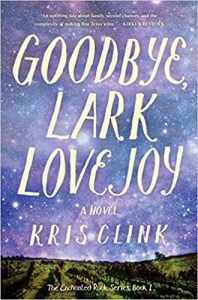How I Improved My Writing And Found My Writing Voice
 Five years ago, I quit my job to write. Thinking I knew what the task required—a computer, ideas, and time, I devoted myself to the job I’d been waiting my whole life to embrace. And embrace it, I did, tapping at that keyboard ceaselessly until my first draft was complete. Proud of my completed work, I passed it along to a few trusted friends to read. A few reported, “I heard your voice while reading.”
Five years ago, I quit my job to write. Thinking I knew what the task required—a computer, ideas, and time, I devoted myself to the job I’d been waiting my whole life to embrace. And embrace it, I did, tapping at that keyboard ceaselessly until my first draft was complete. Proud of my completed work, I passed it along to a few trusted friends to read. A few reported, “I heard your voice while reading.”
Scratching my head, I wasn’t sure what to think. The characters hadn’t resembled me. Except for the story’s setting in my home state of Texas, the plotlines had nothing to do with my life. The comment embarrassed me.
A good writer’s supposed to stay in the background and let the meat of the story rise above the words, or so I thought. Wasn’t the point of writing well to create a story that rises above its creator? My writing career had only begun, and I’d failed so quickly.
I dug into books about the writing craft. Whenever voice was mentioned, I’d tighten my focus, hoping to discover a method to eliminate my presence. I’d learn this was a faulty assumption.
In Bird by Bird, Anne Lamott says, “the truth of your own experience can only come through in your own voice.”
My book had nothing to do with my experiences.
Anne and other writing gurus helped me to appreciate the error of my ways. Voice is essential in storytelling. Each of us have amassed a unique collection of emotional responses throughout his or her life. From a broken heart we suffered in college to the way our grandfather’s teasing made us laugh—the precise amalgamation cannot be duplicated. We may plot and outline our stories, but it’s the alchemy of life’s moments that inspires how we will articulate them. Whether it’s a story of transformation or adventure, the essence in our stories isn’t wholly unique. The storyteller’s voice makes the stories memorable.
In The Water Dancer, Ta-Nehisi Coates opens with a sprawling, one-hundred-word sentence. He ends the book with a one-word sentence. This style isn’t the only defining feature. Coates wields a voice seasoned by his experiences as a black man. If I were to attempt to write a similar story, my version would be artificial and inadequate.
Hemingway left his job at the Kansas City Star to gather life experience. Later, when he penned A Farewell to Arms, the tale of an ambulance driver in World War I, he used his words frugally. Such economy has been attributed to the journalistic training he received while writing for a newspaper. His brevity doesn’t negate the passion in his voice, one weathered by his time in Europe.
Stephen King implores writers to read as much as possible to learn about style and craft. If we’re not careful, all this reading can creep into our writing and affect our voices. Before turning in the last revisions of Goodbye, Lark Lovejoy, I began reading Anthony Doerr’s All The Light We Cannot See. Doerr’s spectacular imagery prompted me to question my manuscript. Returning to tweak a few scenes, I expanded descriptions, adding light and color to the setting.
My husband read my new scenes aloud, his face twisting with concern. The scenes I had enriched with detailed imagery stood out as inauthentic. The lesson was valuable, if not embarrassing.
In Intuitive Editing, Tiffany Yates Martin argues against forcing our artistic voices to appear, encouraging writers to reveal their “singular, distinctive voice.” The practice of writing builds the confidence needed for authors to tap into their authenticity, inviting our “truest selves to emerge on the page.”
You can’t edit what you haven’t written. Once written, it’s a good idea to get an editor’s eyes on your work. Editors can serve as guardrails to support a writer’s authenticity while nudging the work into a marketable ideation.
Here’s where it can get sticky for a newbie author: an editor will improve the clarity and flow of a manuscript, but he or she depends upon you to accept or reject the recommended changes. Maintaining the essence or personality of the work is the writer’s responsibility. I learned this the hard way.
After unsuccessfully querying Goodbye, Lark Lovejoy, I had the good fortune to work with a talented editor who came with a gorgeous resume. No doubt, she knew her stuff, so I assumed her recommendations were gospel. Once our work together concluded, I couldn’t wait to submit queries with the new-and-improved manuscript, confident that this is where the magic was about to happen. I clicked send and waited for positive responses to hit my inbox with wild abandon.
Cue the crickets.
At last, polite rejections began to trickle in. It took a while before I could muster the will to pick myself off the floor and review trends among the responses. Two commented in the vein of, “You edited out your voice.”
I what?
I couldn’t process the words, so I parked that manuscript and began another. I talked to other authors, attended conferences, and took classes and workshops before returning to that original manuscript.
With fresh eyes and shaky confidence, I took another crack at it—this time giving myself permission to break a few rules. I invited my characters to speak as I had heard them telling their stories, even if doing so risked breaking the book. This was where my writing magic happened. Pairing the structural changes my editor recommended with my authentic voice had created the sweet spot that had evaded me for so long.
It took some time to identify my voice, and even more to embrace it. Now, when I sit down to write, I trust the magic can only come when writing from the heart.
Kris Clink writes about endearing characters, interesting settings, and complicated relationships. Set in middle-America, her novels are laced with romance, heartbreak, and just enough snarky humor to rock the boat. Sophieanne, a Harlequin great Dane, runs the house Kris shares with her editor-in-training/doctor husband. When she’s not writing, she’s searching for a Karaoke machine and an understanding audience. Goodbye, Lark Lovejoy will debut April 6, 2021.
GOODBYE, LARK LOVEJOY
 Lark’s lost her husband, and the expiration date has come and gone on her fake-it-till-you-make-it “Happy Mommy Show.” Healing her broken family requires drastic measures―like returning to her hometown in the Texas Hill Country. But she’s going to need more than clean air and a pastoral landscape to rebuild a life for her and her young sons.
Lark’s lost her husband, and the expiration date has come and gone on her fake-it-till-you-make-it “Happy Mommy Show.” Healing her broken family requires drastic measures―like returning to her hometown in the Texas Hill Country. But she’s going to need more than clean air and a pastoral landscape to rebuild a life for her and her young sons.
After years of putting off her dream of becoming a winemaker, Lark puts every cent into a failing vineyard, determined to work through her grief and make a brighter future for her children. The last thing she expects is to fall in love again. Especially not with Wyatt Gifford, an injured Army vet with a past of his own to conquer.
Coming home may not be the reset Lark imagined, but it does take her on a journey filled with humor and reconciliation―one that prepares her for a courageous comeback.
BUY HERE
Category: How To and Tips






























